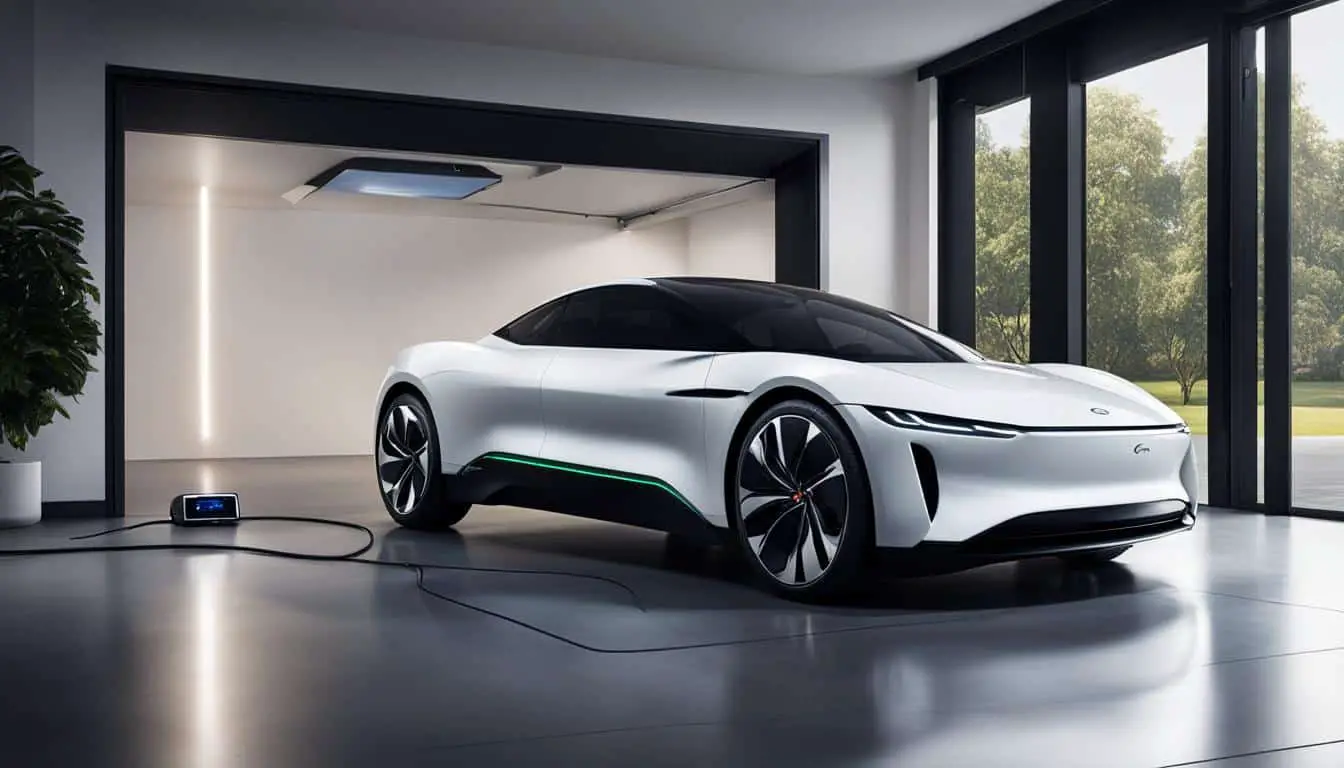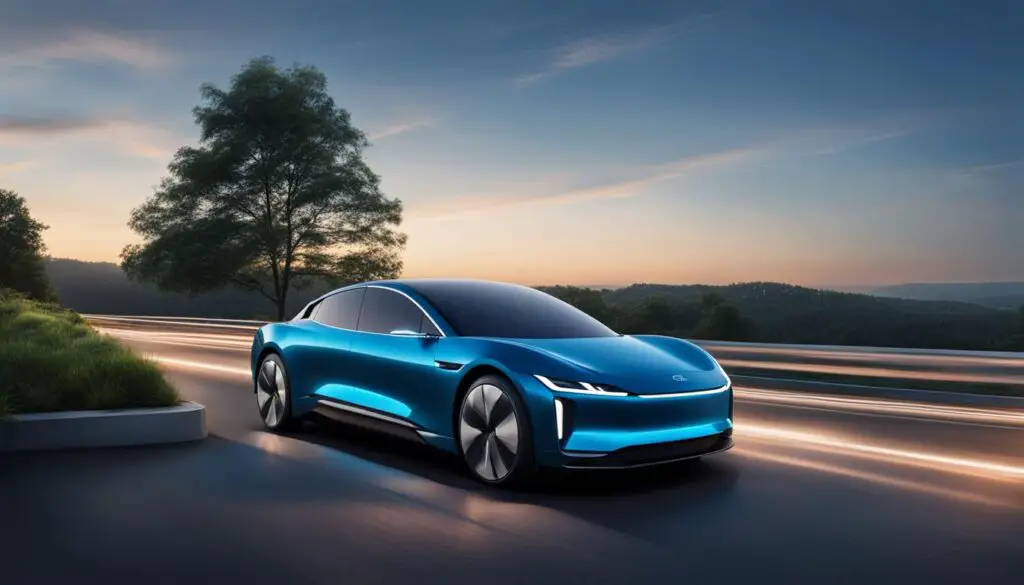
Wireless Charging for EVs: The Future of Electric Vehicle Technology
Wireless charging technology has the potential to revolutionize the way electric vehicles (EVs) are powered. This technology, which uses resonant electromagnetic induction to transmit electrical current, is being developed by companies like Resonant Link and WiTricity. It has the ability to charge EVs wirelessly, eliminating the need for traditional plug-in charging methods. This advancement in EV technology has the potential to reduce the size and cost of EV batteries, increase convenience for EV owners, and even enable dynamic wireless charging on the roads.
Key Takeaways:
- Wireless charging technology has the potential to revolutionize the way electric vehicles are powered.
- Resonant electromagnetic induction is used to transmit electrical current for wireless charging.
- Wireless charging eliminates the need for traditional plug-in charging methods.
- This technology has the potential to reduce the size and cost of EV batteries.
- Wireless charging can increase convenience for EV owners and enable dynamic wireless charging on the roads.
The Efficiency and Speed of Wireless Charging
Wireless EV charging has proven to be a highly efficient method of charging electric vehicles, rivaling traditional plug-in charging methods. Companies like Resonant Link and WiTricity have achieved impressive efficiency rates of 90-93% with their wireless charging systems. This means that the majority of the energy transferred wirelessly is effectively used to charge the EV battery, minimizing energy loss and maximizing charging efficiency.
Furthermore, wireless charging offers remarkable charging speeds comparable to Level 2 plug-in charging. It can deliver up to 20kW of charging power, ensuring that EVs can be charged just as quickly using wireless charging as they can with a traditional plug. This eliminates concerns of potentially slower charging times and highlights the efficiency and speed advantages of wireless charging technology.
The convenience and speed of wireless charging make it an increasingly attractive option for EV owners. With wireless charging, EVs can be conveniently charged without the need for physical connection, reducing the hassle of plugging and unplugging the vehicle at every charging station. The fast charging speeds provided by wireless charging technology ensure that EV owners can quickly recharge their vehicles, enabling them to continue their journeys efficiently.
Wireless EV charging combines the efficiency of traditional plug-in charging with the convenience and speed of wireless technology, offering a seamless charging experience for EV owners.
To better understand the efficiency and speed benefits of wireless charging, let’s compare them to traditional plug-in charging using a table:
| Charging Method | Efficiency | Charging Speed |
|---|---|---|
| Wireless Charging | 90-93% | Up to 20kW (Level 2 charging speed) |
| Plug-In Charging | Varies (typically around 90-95%) | Up to 20kW (Level 2 charging speed) |
As shown in the table, both wireless charging and plug-in charging offer similar efficiency and charging speeds. This highlights the effectiveness of wireless charging in providing efficient and fast charging capabilities for electric vehicles.
With the efficiency, speed, and convenience of wireless charging, EV owners can enjoy a seamless charging experience while contributing to a more sustainable future.
The Benefits of Wireless EV Charging
Wireless EV charging offers several benefits for EV owners. Firstly, it eliminates the need for charging cables, reducing the hassle and inconvenience of plugging in the vehicle at every charging station. With wireless charging, EV owners can simply park their vehicles over a charging pad, and the charging process begins automatically.
Additionally, wireless charging greatly reduces the risk of accidents caused by damaged cables. Traditional plug-in charging methods can lead to worn-out or frayed cables, which can be hazardous. With wireless charging, there are no cables to worry about, providing EV owners with a safer charging experience.
Furthermore, wireless charging can save time. EV owners no longer have to get out of their vehicles and plug in the charging cable manually. This is especially convenient when dynamic charging becomes a reality on the roads. Vehicles equipped with wireless charging technology will be able to charge while driving, eliminating the need for frequent stops at charging stations.
“Wireless charging offers EV owners the convenience of effortless charging. Without the hassle of cables and plugs, EV owners can enjoy a seamless and efficient charging experience.”
The benefits of wireless EV charging, such as convenience, safety, and time-saving, make it an attractive option for EV owners. As the technology continues to evolve and become more widely available, wireless charging has the potential to become the preferred method of charging for electric vehicles.

“With wireless charging, EV owners no longer have to deal with the inconvenience and safety risks of plugging in cables. The future of electric vehicle charging is wireless, offering a more convenient and efficient charging experience for all.”
The Current State of Wireless EV Charging in the U.S.
While wireless EV charging has gained traction in Europe and Asia, its adoption in the U.S. is still in the early stages. Currently, only one EV model, the BMW 530e, offers wireless charging as a factory option.
However, there is significant interest in wireless charging among American EV owners. In fact, 81% of EV owners in the U.S. have expressed interest in EVs equipped for wireless charging. This demonstrates a growing demand for the convenience and efficiency that wireless charging technology can provide.
To meet this demand, companies like WiTricity are actively working on licensing agreements and building partnerships with automakers to bring wireless charging technology to the U.S. market. These efforts aim to expand the availability of wireless charging options for EV owners and make it a viable and accessible choice for all.
However, for widespread adoption of wireless charging in the U.S., the development of a robust wireless charging infrastructure is crucial. Building a reliable and extensive network of wireless charging stations across the country would provide EV owners with the convenience and peace of mind they need for long-distance travel without worrying about running out of power.
Overall, while wireless EV charging is still in its early stages in the U.S., the growing interest from EV owners and the efforts of companies like WiTricity indicate a promising future. As wireless charging infrastructure continues to develop, and more EV models become equipped for wireless charging, we can expect to see a significant increase in its adoption across the country.
Conclusion
Wireless charging is poised to revolutionize the future of electric vehicle (EV) technology, offering a host of benefits and paving the way for a more convenient and seamless driving experience. With the latest advancements in wireless charging technology, companies like WiTricity and Resonant Link are at the forefront of transforming EV charging methods.
The potential convenience of wireless charging cannot be overstated. As EV owners no longer need to rely on charging cables, the hassle of plugging in at charging stations is eliminated. This not only saves time but also reduces the risk of accidents caused by damaged cables, making the charging process safer.
While wireless EV charging is still in its early stages of adoption in the United States, there is a growing interest among EV owners. With 81% expressing a desire for EVs equipped for wireless charging, it is clear that this technology is in high demand. As the necessary infrastructure for wireless charging continues to develop and more EV models become equipped for wireless charging, the future of wireless charging looks promising.
With its numerous advantages, including convenience, safety, and potential cost savings, wireless charging has the potential to become the standard method of charging EVs. The latest advancements in wireless charging technology are shaping the future of EV technology, making it more accessible and appealing to a wider audience. As we look ahead, it is clear that wireless charging will play a significant role in the continued growth and evolution of the electric vehicle industry.
FAQ
How does wireless charging work for electric vehicles?
Wireless charging for electric vehicles uses resonant electromagnetic induction to transmit electrical current, eliminating the need for traditional plug-in charging methods. It involves a charging pad on the ground and a receiver pad on the vehicle, which wirelessly transfers power to the vehicle’s battery.
Is wireless charging as efficient as traditional plug-in charging methods?
Yes, wireless EV charging has been shown to be as efficient as traditional plug-in charging methods. Companies like Resonant Link and WiTricity have achieved 90-93% efficiency with their wireless charging systems, delivering up to 20kW of charging power.
What are the benefits of wireless EV charging?
Wireless charging eliminates the need for charging cables, making it more convenient for EV owners. It also reduces the risk of accidents caused by damaged cables, resulting in a safer charging experience. Additionally, wireless charging saves time by eliminating the need to get out of the vehicle to plug in, especially when dynamic charging becomes available on the roads.
What is the current state of wireless EV charging in the U.S.?
While wireless EV charging has gained traction in Europe and Asia, it is still in the early stages of adoption in the U.S. Currently, only one EV model, the BMW 530e, offers wireless charging as a factory option. However, there is significant interest among American EV owners, with 81% expressing interest in EVs equipped for wireless charging. Companies like WiTricity are working on licensing agreements and building partnerships with automakers to bring wireless charging technology to the U.S. market.
What is the future of wireless charging for electric vehicles?
Wireless charging holds immense potential for the future of electric vehicle technology. It offers numerous advantages, including convenience, safety, and potential cost savings. As the infrastructure for wireless charging continues to develop and more EV models become equipped for wireless charging, this technology has the potential to become the standard method of charging EVs.
Source Links
- https://www.mckinsey.com/industries/automotive-and-assembly/our-insights/perspectives-on-wireless-and-automated-charging-for-electric-vehicles
- https://www.marketplace.org/2023/10/30/wireless-charging-electric-vehicles/
- https://evchargingsummit.com/blog/everything-you-need-to-know-about-wireless-ev-charging/
